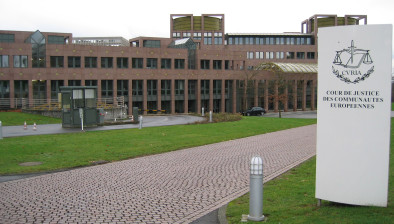High Court: Revocation of EU residency quashed as minister failed to conduct oral hearing

The High Court has quashed a decision by the Minister for Justice and Equality to revoke the EU residency status of Georgian man on the basis that no oral hearing of the application took place. The Minister had determined that the applicant had engaged in a marriage of convenience for immigration purposes but had conducted the assessment on a paper-only basis.

About this case:
- Citation:[2022] IEHC 278
- Judgment:
- Court:High Court
- Judge:Ms Justice Siobhán Phelan
Delivering judgment in the case, Ms Justice Siobhán Phelan held that fair procedures required the applicant and his spouse to have the genuineness of their marriage determined through a face-to-face interview or hearing. Further, the serious nature of the allegations against the applicant entitled him to a “wide panoply of procedural protections”, the court said.
Background
The applicant was a Georgian national who travelled to Ireland without permission in September 2016. He claimed to have met his wife, a Lithuanian national, on a dating app in May 2016 while he was living in Georgia and she was living with her mother in Citywest. It was claimed that the couple courted online and that their relationship accelerated when the applicant arrived in Ireland.
The applicant only notified the Irish authorities of his presence in the State when he applied for international protection in February 2017. In the meantime, the couple married in March 2017. The marriage certificate listed a common address in Dublin 6. In April 2017, the applicant submitted an application to the Minister for a residence card and the protection application was withdrawn in July 2017.
The applicant was informed that he was required to advise the Minister of any change in personal circumstances which might affect his right to reside in the State.
The couple claimed that their relationship was genuine but became strained in December 2017. Eventually, the wife left the couple’s accommodation in October 2018, living in a series of rented accommodations thereafter. The applicant did not advise the Minister that his relationship had broken down.
In March 2019, the Minister wrote to the applicant seeking evidence relating to the identity and relationship of the EU citizen (the wife) in the application. In April 2019, the couple provided a jointly-written letter which outlined that the relationship had ended.
The Minister then wrote back to the applicant and informed him that his permission to remain in the State would be revoked on the basis that he had submitted false and misleading information about his marriage. The letter focused on the short time between arrival in the State and marriage and records of different addresses for the couple when they were apparently living together.
In a further letter, the applicant explained that he did not inform the Minister of the difficulties in his marriage because he hoped to fix the problems. However, the Minister issued a decision to revoke his residency card in August 2019, claiming that the applicant had engaged in a marriage of convenience. This was said to be a fraudulent act within the meaning of the EC (Free Movement of Persons) Regulations, 2015.
The applicant submitted a request for a review of the decision and representations were made by his solicitor. In February 2021, the review letter issued to the applicant and upheld the original decision.
Although the applicant raised several issues with the process, the main issue was whether he was entitled to an oral hearing before the Minister. A request for an oral hearing was only made after the review was completed and the Minister submitted that there was no requirement for an oral hearing under the relevant laws.
High Court
Ms Justice Phelan began by outlining the relevant statutory framework and the submissions of the parties. Dealing with the issue of an oral hearing, it was noted that it was not always necessary to have an oral stage to the decision-making process to secure the right to fairness and neither the EU Directive nor the domestic regulations required an oral hearing in all cases.
The court also noted that the applicant rejected the Minister’s assertion that he had engaged in a marriage of convenience and claimed that he had not been afforded a proper opportunity to defend this position. It was also contended that an oral hearing was crucial to the vindication of the right to constitutional justice where credibility was in issue (Galvin v. Chief Appeals Officer [1997] 3 I.R. 240).
The court held that the present case concerned conclusions as to the credibility of the applicant. The court considered U.P. v. Minister for Justice [2014] IEHC 567, which held that where negative findings of credibility are made against a party, the loss of an oral hearing was a “serious matter”. The court also referred to M.M v. Minister for Justice and Equality [2018] IESC 10, where it was held that paper-only assessments were only rarely permissible and that most cases where facts were disputed required oral hearings.
Applying the law to the facts, the court held that there was nothing demonstrably false in the applicant’s application and therefore concluded that the Minister’s decision was based on the credibility of the applicant. Considering the serious allegations made by the Minister against the applicant, the court drew analogy with Damache v. The Minister for Justice [2020] IESC 63. In that case, it was held that revocation of citizenship required certain procedural safeguards, including an oral hearing.
The court said: “In my view the import of the [Minister’s] decision for the Applicant is such that he is entitled to a wide panoply of procedural protections because he has been accused of serious misconduct. The need for such protection arises given the life-changing nature of the [Minister’s] findings which will in all likelihood lead to the removal of the Applicant from the State.”
Further, the court rejected the Minister’s submission that the applicant failed to ask for an oral hearing prior to the decision being made. The court noted that, on the Minister’s evidence, there was no pathway to an oral hearing anyway. The need for an oral hearing crystallised when the Minister claimed that the applicant had not addressed the Minister’s concerns, the court said.
Conclusion
The court was satisfied that fair procedures required the plausibility of the applicant’s account to be assessed at an oral hearing or interview. In particular, the court noted that the regulations required a decision to be made on the familiarity of the couple with each other’s personal details, but no such decision was made in the case. An oral interview or hearing would facilitate this decision, the court said.
Accordingly, the court quashed the Minister’s decision on the basis that the decision-making process was unfair.
ZK v. Minister for Justice and Equality [2022] IEHC 278









